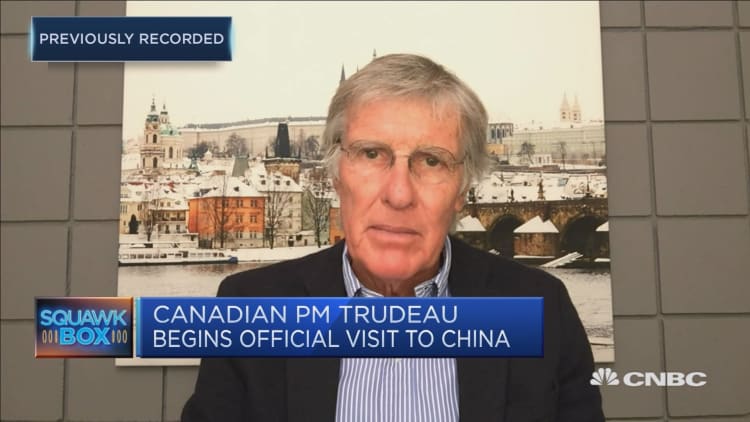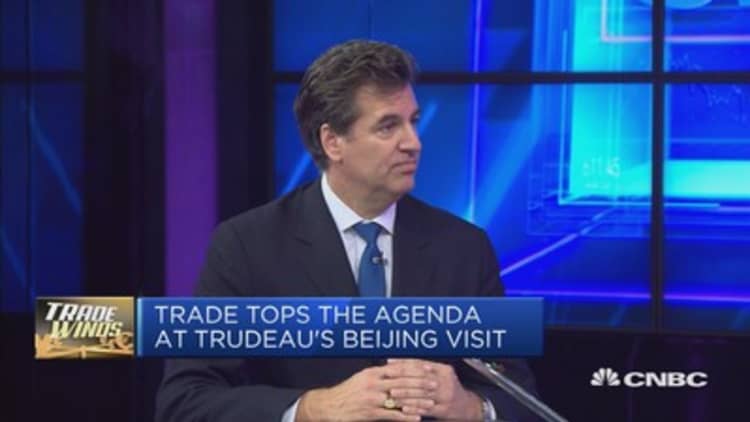
Canadian Prime Minister Justin Trudeau is on tour in China to discuss trade, but experts say significant hurdles stand in the way of progress.
Underlying the trip is the fact that Canada's trade prospects took a hit following U.S. President Donald Trump's threat in August to withdraw from the North American Free Trade Agreement. And as uncertainty shrouds the future of NAFTA — which ties together the U.S., Canada and Mexico — Trudeau has an "urgent" need to diversify his country's trade relationships, according to Jeremy Kinsman, a former ambassador of the country and a distinguished visiting diplomat at Ryerson University.
But any attempt to pivot to China, Canada's third-largest trading partner after the U.S. and the European Union, appears fraught with difficulty.
Trudeau has set forth a so-called progressive trade agenda calling for agreements about labor and environmental ethics, gender equality and indigenous rights. But those are issues Chinese President Xi Jinping will be reluctant to discuss, according to Charles Burton, professor of political science at Brock University.
"It's very unlikely that the Chinese government will be prepared to set a precedent in linking non-economic factors" to a Beijing-Ottawa trade agreement, Burton said.
Concerns over human rights could become a key sticking point as Beijing continues to hold two Canadians wine merchants over an alleged customs breach, in a case that has sparked public outcry in the North American country, Kinsman said.

Such differences mean that trade negotiations will likely take a long time, he added, noting that the China-Australia Free Trade agreement came into force only after a decade of talks.
Any talks with China also come at the risk of angering the United States, especially if Canada were perceived as being a conduit for cheap Chinese goods into the U.S. market, Burton said.
Difficulties extend down to the level of business. Canadian companies distrust some Chinese counterparts, which could muddy the prospects of a wide-ranging free trade agreement, according to Alex Capri, visiting senior fellow at NUS Business School.
"Given the blurry line between the government and state-owned enterprises and Chinese businesses, there's concern ... whenever a Chinese company comes in and starts looking to acquire" other firms, Capri said.
"We saw that with Bombardier ... there's absolute apprehension," he added.
Canadian jet maker Bombardier agreed in October to sell a majority stake its C Series program to Airbus after the former's plans for a Beijing tie-up reportedly fell through. Bombardier's executives worried that discussions with the Chinese state-owned firms were progressing too slowly, sources said.
The five-day visit is Trudeau's second since taking office two years ago. He and Chinese Premier Li Keqiang were unable to announce the start of formal trade discussions as their meeting concluded Monday in a development that disappointed many.
Trudeau is set to meet Xi on Tuesday.
Correction: An earlier version misstated the scope of the October deal between Bombardier and Airbus. Bombardier agreed that month to sell a majority stake its C Series program to Airbus.

